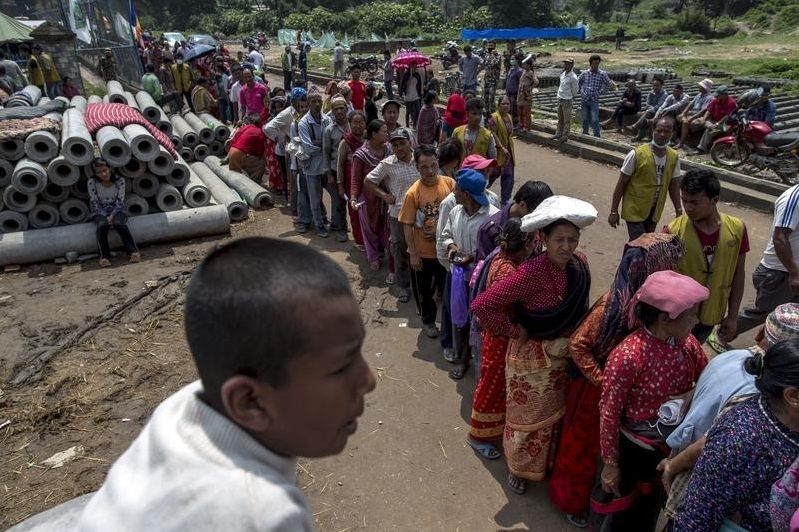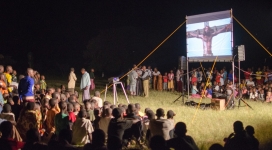
During the first two weeks after an earthquake hit Nepal in April, Fidelity Charitable sent out 4,400 grants totaling almost $5.3 million from donors using special charitable accounts called donor-advised funds at the Boston-based nonprofit associated with Fidelity Investments. Now a few months later, the total is up to 6,000 grants totaling $7.8 million.
Within hours of something bad happening around the globe - whether its a hurricane or a humanitarian crisis like the flow of refugees from Syria - people start calling places like Fidelity Charitable, to ask where their donations would be most useful.
In the philanthropic circles, motivating folks to give can be a costly and fickle marketing exercise. Donor-advised funds, which operate like mini-foundations, help to bridge the gap.
"What we know about individuals, when it comes to disasters, is that they are highly influenced by media coverage and by the type of disaster," said Bob Ottenhoff, president and chief executive officer of the Center for Disaster Philanthropy, a nonprofit based in Washington. "That is why so much money flows immediately after there is a certain type of disaster, and it dries up after a couple of days."
Individuals gave an estimated 72 percent of the $358.38 billion donated to charity in 2014, according to Giving USA, with the rest coming from foundations and corporations.
Donor-advised funds make up a very small but growing part of that individual pie, granting $12.5 billion in 2014, up from $9.7 billion in 2013, according to the National Philanthropic Trust, which operates a donor-advised fund. And overall assets held in those accounts rose to $70 billion from $58 billion.
At Fidelity Charitable, one of the largest providers, you will need $5,000 to open a donor-advised fund. Most of those who open accounts like these have planned giving on their minds - to their alma maters, religious organizations, health concerns or local communities. But account holders at Schwab Charitable, for instance, leave about 30 percent of their assets free to fund causes that come along.
"It's hard to know how many are pulling a credit card out and donating directly rather than using their donor-advised funds," said Kim Laughton, president of Schwab Charitable. "But I think they understand they can do it quickly through the fund. They can even grant from a cellphone, which is really nice."
The advantages of giving through a donor-advised fund are that the money can be set aside and noted on tax returns, but granted later. Also, the fund groups take care of much of the paperwork involved in a donation - especially helpful for non-cash gifts like stocks or even Bitcoin, at some organizations.
Donors should note, however, that brokerage management fees do apply to the accounts, as in regular investment accounts.
While Fidelity and Schwab send out email blasts and newsletter updates to their donor bases when a major disaster occurs, they worry about creating disaster-giving fatigue. This has made some other donor-advised funds very cautious about pushing out notices.
"We wait for donors to come to us, rather than becoming an annoying dinging to them," said Eileen Heisman, president and CEO of the National Philanthropic Trust.
All the funds are especially cautious about looking beyond the immediate emotional need to help when they select charities to highlight. That is what Fidelity tried to steer with its Nepal effort, said Elaine Martyn, vice president of the private donor group at Fidelity Charitable. While the website highlighted just a few charities to start, by the time those 6,000 grants were given out, they went to hundreds of different organizations like Doctors Without Borders, Save the Children and smaller ones that focused on eye health and animal welfare, many of which will be providing long-term support for rebuilding.
"Lot of donors want to give to the first responders, then they forget about it. There's a whole other set of organizations that are good at hanging in there," added Heisman.
Ottenhoff suggests breaking up gifts into two parts, one for immediate need and one for long-term building.
"It should be a time to take a moment of reflection - what do you want to accomplish? What organization can do it?" he said.







